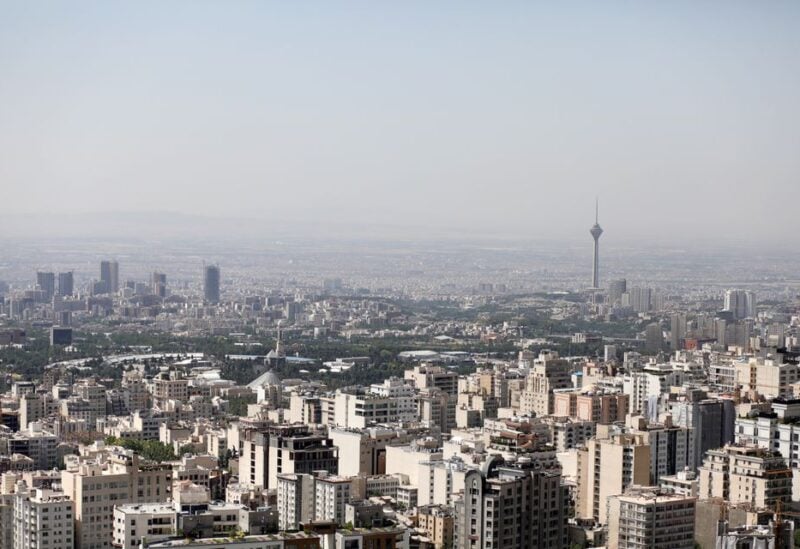
A general view of Tehran city, in Tehran, Iran June 12, 2020. Ali Khara/WANA (West Asia News Agency) via REUTERS/File Photo
The Iranian security services continue to arrest activists who participated in a conference last weekend, which discussed the chances of a referendum for a peaceful political transition to a secular regime.
Activists reported on Twitter that the security services arrested civil and political activist Abdollah Momeni in his home days after he participated in the “How to Save Iran” conference.
Momeni’s arrest came after another conference participant held over the Clubhouse application, Alireza Beheshti Shirazi, was apprehended. Shirazi was an advisor to Mir Hossein Mousavi, who is under house arrest.
The authorities arrested veteran journalist Keyvan Samimi, 74, who was announced among the conference participants.
Samimi appeared in a video recording, calling for forming a National Salvation Front.
Agence France-Presse (AFP) quoted the state-affiliated Jam-e Jam website saying that Shirazi was arrested as part of the judicial campaign against anti-revolutionary elements.
The authorities accused Mousavi’s advisors of instigating the statement which called for ending Iran.
The website referred to a text published in early February, in which Mousavi called for “radical changes in Iran” by organizing a referendum on the constitution.
He described the paradoxical structure and unsustainable basic system as the major crisis in the country.
Jam-e Jam indicated that the three men participated in a virtual conference calling to overthrow the regime and draft a new constitution, reported by the AFP.
Mizan agency quoted an informed security official that Mousavi is under the control of the opposition Mojahedin-e-Khalq Organization.
The security official said that Mousavi’s latest statement was a “direct copy” of the rhetoric of the Organization.
He accused Ardeshir Amir Arjomand, a Paris-based political activist who runs the Kalima website and Mousavi’s adviser, of being directly involved.
Arjomand was one of the founders of the “How to Save Iran” conference, which included a group of reformist activists calling for a peaceful and gradual transition to a secular regime.
Dozens of political and civil society activists at home and abroad participated in the conference, which discussed transitioning from religious rule to a secular democratic political system.
Mousavi was Iran’s prime minister between 1981 and 1989 and ran for the presidential elections in 2009. Along with former Shura Council President Mahdi Karroubi, Mousavi protested the re-election of outgoing President Mahmoud Ahmadinejad, denouncing widespread fraud.
The former premier was not the only one who issued a controversial statement after the anniversary of the 1979 revolution last February.
Former President Mohammad Khatami tried to distance himself from this discourse, noting that reform was possible and urging a return to the constitution.
Earlier this week, Khatami reiterated his opposition to demands to overthrow the political system.
The former president, Hassan Rouhani, was also among the advocates of a referendum on “diplomacy,” “domestic politics,” and “the economy.”
The top Sunni cleric in Iran, Abdolhamid Ismailzahi, repeatedly called for a referendum to choose the governing method that enjoys the support of the majority of the people.
The Imam of Zahedan’s Friday prayer stressed that the referendum is the way out of the current problems in the country.
On April 18, Supreme Leader Ali Khamenei rejected opposition to calls for a referendum on state policy, saying the various issues of the country cannot be put to a referendum because each referendum preoccupies the entire country for six months.
In statements published on his official website, Khamenei added, “Where in the world do they hold referendums for all issues?”
During the Eid sermon, Khamenei called for focusing on resolving issues and refraining from “marginal issues,” warning that the enemies want to divide the nation.
Khamenei accused the enemies of aiming for conflict between Iranians because of different beliefs and sects, asserting the need to maintain unity to overcome challenges.
“The enemy is against the unity of the Iranian people,” he said, adding that the different sects and beliefs can coexist and work together in the country.